![[Xbox 360] Silent Hill Homecoming Review](http://aggrogamer.com/backups/userimages/1225431839-Silent_Hill__Homecoming_Pics_45.jpg) The avatar with which you traverse the hellish town of Silent Hill in this iteration is one Alex Shepherd, a strapping young soldier recently discharged from service due to an injury. When we're first introduced to Alex it's through a nightmare in which he's being wheeled through a hospital (the familiar Alchemilla)on a rusty old gurney. After he is released, he finds that his little brother Josh, who has been missing in real life, is roaming around the hospital just like good little brats in horror games do. Long story short, before Alex can make any real progress, he is turned into a human kebab by a familiar rusty sword, near an elevator. After waking up from this terrifying nightmare, Alex realizes he was dreaming, and thus the game follows Alex through his traversing through town as well as the familiar, foggy as all get out, Silent Hill.
The avatar with which you traverse the hellish town of Silent Hill in this iteration is one Alex Shepherd, a strapping young soldier recently discharged from service due to an injury. When we're first introduced to Alex it's through a nightmare in which he's being wheeled through a hospital (the familiar Alchemilla)on a rusty old gurney. After he is released, he finds that his little brother Josh, who has been missing in real life, is roaming around the hospital just like good little brats in horror games do. Long story short, before Alex can make any real progress, he is turned into a human kebab by a familiar rusty sword, near an elevator. After waking up from this terrifying nightmare, Alex realizes he was dreaming, and thus the game follows Alex through his traversing through town as well as the familiar, foggy as all get out, Silent Hill. Of course, things are not exactly as Alex remembers at home. All kinds of residents have gone missing, his own mother seems to have gone insane, and his little brother Josh is still missing. However, as always, things are not quite what they seem. What ensues after the initial transportation into the mysterious town is a tale of might-have-beens, cult activity (the familiar "Order", who worship the God of Silent Hill), and repressed memories that could hold the key to what has been happening all along. It's a storyline that is admittedly not much of a departure from what we have seen from the series thus far. However, it is the slightest bit easier to understand due to a few less cryptic areas and scattered informational tidbits amongst the town, such as Josh's drawings, letters, journals, and the general assumptions one can make based on stories they've experienced before.
This entry is admittedly only a slightly updated take on the same mechanics we've seen time and time again. Deeply rooted in the occult with a missing person, a singular entity much seek that missing person out on a journey of personal discovery, only to discover at the end some mind-altering secrets that the gamer might have figured out early on. While traversing through the different environments he is forced into, Alex must fight his way through the sparsely scattered atrocities. It's Silent Hill, what do you expect? However, this time around, a certain part of the game's mechanics have been altered dramatically-the controls. Before, if you'd played a Silent Hill game, you'd take note of the horribly awkward movement that came with it. Protagonists couldn't turn just as fast as you wanted them, and they suffered from the original Resident Evil-styled controls, as did many of the PlayStation's earliest genre releases. Sluggish combat, awkward button placement, and an almost unmanageable camera at times made otherwise brilliant games a chore to muddle through. Being a hardcore Silent Hill fan, I stuck it out, but all these years it's been high up on my fellow Silent Hill brethren's wishlist for the premiere name in scaring the pants off of gamers to receive a revamped, more manageable control scheme. In SH:H, this wish has finally been granted. Gamers now can rotate the camera to their heart's desire, and by way of the analog sticks for both the PS3 and Xbox 360, Alex is a dream to control. Instead of holding down a button to ensure that he runs, running is the default movement, which is how it should have always been to start with. With this new and glorious reign of control, it's now quite easy to navigate through all sorts of different areas, even though the cinematic air of camera angles when one would venture into certain locations may be missed by series loyalists. However, this is a trivial price to pay when you consider how much easier it is now to get from point A to point B with a lesser amount of hangups.
Not only are the controls more streamlined overall, but now combat has taken a turn for the better. Rather than being a loathsome annoyance to avoid at all costs, fighting the nasties you encounter is actually fun. It is now possible to dodge oncoming attacks by timing your button press right as they lunge to attack. Not only does this allow for much more effective combat, but you can conserve more health drinks and first aid kits, leaving them for when you really need them (and with some of the bosses, you most definitely WILL need them). As for checking up on your status, there is a health bar to the left of Alex that depletes any time you take damage, so it's not a chore to figure out whether you're going to be needing that health drink or not.
However, as series purists/fanboys do so love to complain, it is worth noting that this smooth transition from exploring to fighting and easier blocking, plus combo moves, take away just a bit of the tension present in the earlier games. However, I never found the difficulty of the fights to be tense. I found them downright obnoxious. The actual foreboding and mood of the game was what gave it the tension for me. Do horrible control schemes make games tense, then? If so, could one argue that games like Too Human or even Aquaman were tense because of how horrendous the controls were? I feel this is a fairly insipid argument, as the tense atmosphere of a game should come from polished, smooth controls, and the content of the game. If the game had retained its atrocious control scheme from previous incarnations, critics would complain about that instead, because you can't please everyone.
Rest assured that what lies ahead for you should you choose to take up a PS3 or 360 controller is nothing but smooth sailing when it comes to combat and making your way from place to place. Since players can control the camera now, that annoying effect where James or Harry or Heather or whoever you were playing at the time would turn and crane their head as they passed an item of interest or a monster is now gone. It looked strange and unnatural, and I'm glad it was done away with.
Some gameplay elements that were a pleasant surprise were the interactive events that require correct button presses at the right time, as well as the ability to take certain arms and rip, chop, and slash your way through otherwise blocked exits. This was a welcome turn from all of the locked, broken, or otherwise unusable doors present in Silent Hill titles. Also included in a strange twist are the conversation options that appear when confronting new characters or meeting up with others. Seeing as the game has multiple endings, it is assumed that they contribute a bit to what you will receive when you reach the finish line. However, it would seem that the conversations near the end are really the ones you should watch out for rather than frivolous conversations in the first half of the game. This was an unexpected addition, giving the game a Mass Effect-like feel that could very well be extended upon in the future, depending on fans' reception. I personally would have loved to see character evolution involving more of the conversational choices.
Silent Hill: Homecoming's bestiary includes the staple undead (yet still sexy) nurses, smog monsters that resemble a man with his chest ripped apart, expelling toxic gases that send Alex to the ground, dogs that appear to have had their skins inhumanely scraped away, as well as the insanely obnoxious "Creepers," large cockroach-like creatures that skitter along the ground and attach to Alex like monstrous ticks. Even though technically these creatures have not been seen in the other games, they do feel slightly tired and boring, never straying too far from the traditional Silent Hill formula. Rather than being fearsome, most of the cronies are just plain annoying. It would have been nice to see a slight departure from character designs that have come to be expected. Pyramid Head, the figurehead (pun very much intended) of the Silent Hill name, even makes the occasional appearance, though this iteration is known as the Bogeyman, I suppose in order to justify what would have otherwise been a shameless tossing in of an iconic figure.
This isn't the best-looking current-gen game out there, but it delivers. It retains that trademark Silent Hill rusty, grainy feel, with the ominous fog present when appropriate. However, during cutscenes, sometimes characters' voices tend to be audible a few seconds before their mouths move, or often a few seconds after. It lends a touch of "foreign movie" feel that I didn't quite care for. However, it only happens now and again, and is very unforgivable. Overall not much has changed with the environments. If you're no stranger to Silent Hill, chances are you will feel right at home. Akira Yamaoka has once again contributed to a chilling and atmospheric score that is well worth purchasing even if you don't enjoy the game. If you happen to have the complaint that the game was not scary enough for you, Yamaoka's soundtrack, a dark, locked room, and some time alone will definitel freak you out. Dark synths, beautiful piano, and haunting melodies abound, and this was an excellent submission from one of the best choices for a horror-related video game.
Silent Hill: Homecoming is very much what its title implies. It is a simple return to classic Silent Hill form with many much-needed updates, adjustments, and surprises. With multiple endings to choose from, replay value is quite high if you feel like experiencing the story again to get a different ending. Everything is quite comfortable and familiar here in Silent Hill. You have all the time in the world to get accomodated to what changes have been made. Fans of the genre will either love or hate these new changes, but some are just afraid of change. In this case, change is good. Very good.
Silent Hill: Homecoming is an impressive spin on a series that was starting to get just a bit stale, and every bit worth trying, even if you choose only to rent it.













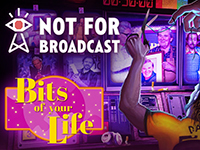
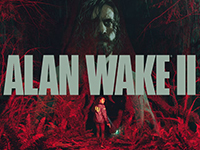
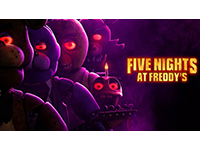
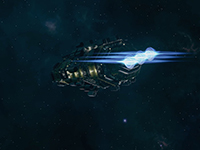
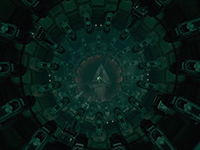
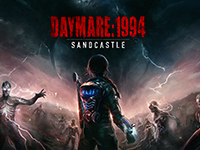
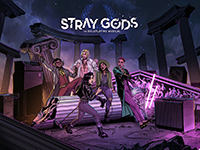
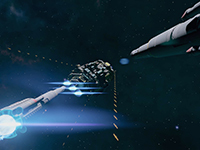






![Brothers: A Tale Of Two Sons Remake — Hades Plays The Game [PS5 Gameplay] Brothers: A Tale Of Two Sons Remake — Hades Plays The Game [PS5 Gameplay]](https://img.youtube.com/vi/Hqi5PSDktwE/default.jpg)












![Stray Gods: The Roleplaying Musical — Hades Plays The Demo [PC Gameplay] Stray Gods: The Roleplaying Musical — Hades Plays The Demo [PC Gameplay]](https://img.youtube.com/vi/9KovJqWbxXc/default.jpg)

![AggroCast — Let’s Talk Summer Game Fest [Episode Nine] Teaser AggroCast — Let’s Talk Summer Game Fest [Episode Nine] Teaser](https://img.youtube.com/vi/7ONtHKQIFXg/default.jpg)
![Shadow Gambit: The Cursed Crew — Hades Plays The Demo [PC Gameplay] Shadow Gambit: The Cursed Crew — Hades Plays The Demo [PC Gameplay]](https://img.youtube.com/vi/tVpM6AIbPyk/default.jpg)

